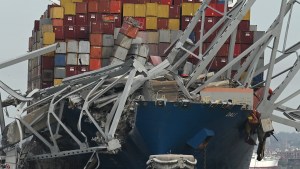Every year on the second Sunday of July, Sea Sunday is celebrated. The Catholic communities of the entire world pray for those who work in the maritime sector and for those who take care of them.
Sea Sunday is an occasion to shed light on one of the sectors about which little is said but that is at the center of everyone’s lives. The Day encourages efforts that confront injustices, exploitation, and inequalities.
Our own history
It’s by way of the sea that the Church was formed and spread throughout the entire world. Sailing out and landing in faraway ports, the Apostles and missionaries brought the Good News out to the furthest corners of the Earth. The experience of that time can be an inspiration also for the Church of today.
A message from the Church each year is addressed to the seafarers of every provenance and faith because those who work in this sector come from all nations and profess all the religions of the world. The commitment of the Church is to include them without distinction to grow together in mutual understanding and solidarity so that “the people of the sea can feel part of the Church wherever they may go.”

~
Here is the message of the prefect of the Dicastery for Promoting Integral Human Development, Cardinal Michael Czerny, SJ, for the occasion.
Message for Sea Sunday
(14 July 2024)
Dear Brothers and Sisters in Christ,
In his first letter to the Corinthians, St. Paul describes the Church as a Body with many members (cf. 1 Cor. 12:12-27). He notes that even the least visible members of a body make necessary and significant contributions to the functioning and well-being of the whole. In all of humanity, seafarers are among the least visible members. Yet, it is through their hidden efforts that many of our necessities reach us. They experience the boundless beauty of nature in the seas, yet they also encounter physical, spiritual, and social darkness.
Recognizing seafarers, every year on the second Sunday of July, known as Sea Sunday, Catholic communities throughout the world call attention to and pray for all those who do this work: the crews of the ships that transport goods and those who moor them to the pier, the dockworkers, tugboat operators and stevedores, the coast guard, maritime traffic and salvage personnel, customs agents and fishers, and all with whom they collaborate, in addition to their families and communities.
The total count of these workers plus their families is surely in the many millions. Sea Sunday makes their unseen daily realities visible.
Today as well as in the past, seafaring can entail absence from home and land, for months and even years. Both the seafarers and their families may miss significant moments in the other’s life. The pay may make these sacrifices worthwhile, but that benefit may be threatened by injustices, exploitation, and inequality. It is marvellous, therefore, when the dignity and rights of seafarers are advocated for by the volunteers, chaplains, and members of the local Churches at the ports, who engage in seafarer ministry.
“Out of sight, out of mind” is an adage that can apply to the invisibility of seafarers. Addressing the tendency to remain distant and separated from each other, Pope Francis says, “True wisdom demands an encounter with reality… The process of building fraternity, be it local or universal, can only be undertaken by spirits that are free and open to authentic encounters” (Fratelli Tutti, 47, 50).

The ministry of the sea can help to bring the peripheral into the centre in many ways, for example: by encountering the people of the sea in person and in prayer; improving the material and spiritual conditions of labourers; advocating for the dignity and rights of workers; and championing strengthened international relations and policies to safeguard the human rights of those who travel and work far from their families and homelands.
The Church is called to serve each member of the human family. Because seafarers come from every country and faith from around the world, including them in the life and ministry of the Church allows for a growth in mutual understanding and solidarity among all peoples and religions.
We find strength and encouragement in the example of St. Paul who spent much time on the seas during his missionary journeys. One important city where the Church took root was Corinth, which had become very wealthy because of its two ports and its canal. It was an active centre for international commerce. The diverse residents and visitors in the port city encountered the preachers of the Gospel, who responded to their deepest needs and revealed to them their infinite dignity. But the diversity of the new believers threatened to divide them.
St. Paul responded to these tensions by reminding them of their organic connection to one another and of their shared humble social status, saying: “Consider your own call, brothers and sisters: not many of you were wise by human standards, not many were powerful, not many were of noble birth” (1 Cor 1:26). These words encourage the Church today to work for increased unity, not only among people who are different from each other, but also among people who are experiencing division and mutual tensions.
The Church today can draw inspiration from the inhabitants of shoreside communities who were the first to hear the utterly new message of Christ from seafaring apostles and other missionaries
As St. Paul reminds us, the Church must not flee from these challenges if it is to be faithful to the mission entrusted to it by the Lord. Further, increased union among believers serves an increased unity among all peoples and lands. Christianity spread by sea to far-off lands; there was no other choice. The Church today can draw inspiration from the inhabitants of shoreside communities who were the first to hear the utterly new message of Christ from seafaring apostles and other missionaries. Each newly arriving vessel meant more encounter and exchange, more openness to novelty and the vast possibilities beyond the local shores. The call to embrace the stranger can challenge us when we prefer to remain socially and spiritually isolated. We cannot be open to life’s possibilities if we prefer the comforts of the familiar. The way of openness is the way of hope.

We invite everyone to do their part to courageously repair our common home and to grow in fraternity and social friendship. May we acknowledge the essential contribution of those whose work might otherwise remain invisible. May we support the ministry of welcoming those who need a listening ear and
a place to belong, a safe harbour, a community that welcomes all who wish to return home. May we be inspired by the example of the mutual exchanges in the life of seafarers. May the people of the sea feel part of the Church wherever they go.
We ask Our Lady, Star of the Sea, to accompany all those whose lives and work are marked by the sea, and to be their guiding star on the way to Christ.
Cardinal M. Czerny S.J.
Prefect of the Dicastery for Promoting Integral Human Development



